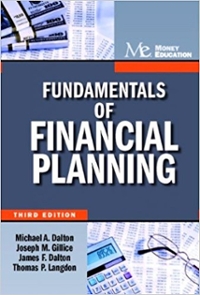Question
You are an original owner of a publicly traded food service company named Smiths Foods (SF). Your company has been in the high-end restaurant business
You are an original owner of a publicly traded food service company named Smiths Foods (SF). Your company has been in the high-end restaurant business (HE) for the past ten years. You announced today that the company will be issuing debt today to open a new fast food division (FF). Opening this new division costs $10M today, which you will fund by issuing debt. Revenues from this new division are expected to be $3.5M next year and are projected to grow by 4 percent per year. Costs from this new division are expected to be $2M next year and are projected to grow by 2 percent per year. The life of this project is 15 years. Analyses of other fast food businesses suggest that the beta of a typical fast food division equals 0.70. Assume that the revenues and costs have similar risk. Throughout this problem, assume a risk-free rate of 3 percent and a market risk premium of 6 percent. a) What is the NPV of this new investment? Is the investment worthwhile? (Hint: you will need to use the growing annuity formula twice: once for revenues and once for costs.) A regression of monthly SF excess stock returns on monthly S&P 500 excess returns from the past ten years tells you that the beta of the high-end division equals 1.5. Directly before the investment in the fast food division, SF was an all-equity firm with 1M shares outstanding trading at $25 per share. This represents the value of the high-end division. Assume that the announcement of the new division does not affect the value or beta of the high-end division. b) What is the beta of the firm after the announcement of the new division? The beta of a firm can be calculated as the value-weighted average of the division betas: = 1 1 + 2 1 + 2 1 + 2 2 where the value of the new division equals the present value of its future net cash flows (when calculating the value of the fast food division, do not subtract the initial $10M cost, as this was paid for using newly-issued debt). c) Assume that the beta of the new debt (valued at $10M) equals 0.1. What is the beta of the firms equity after the announcement of the new division? d) The beta of your firms equity was originally 1.5. There are two reasons why the announcement caused the beta of your firms equity to slightly change one reason caused the original beta to decrease while the other caused it to increase. Briefly explain these reasons.
Step by Step Solution
There are 3 Steps involved in it
Step: 1

Get Instant Access to Expert-Tailored Solutions
See step-by-step solutions with expert insights and AI powered tools for academic success
Step: 2

Step: 3

Ace Your Homework with AI
Get the answers you need in no time with our AI-driven, step-by-step assistance
Get Started


